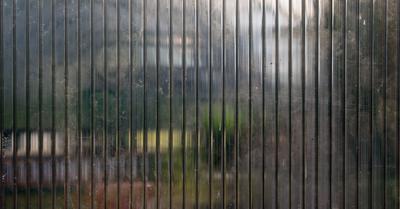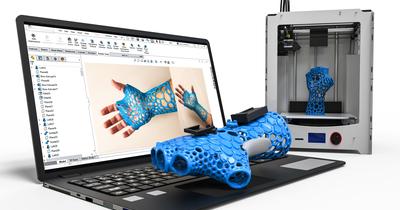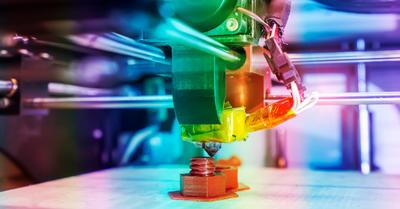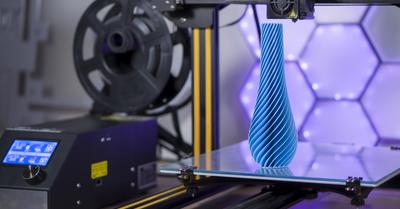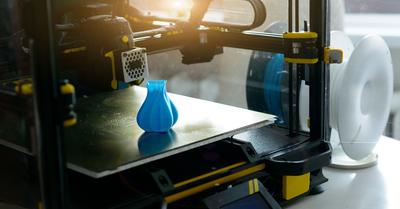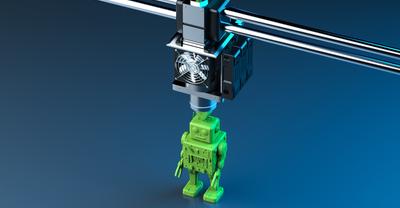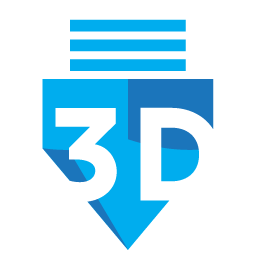What Skills Do I Need for 3D Printing?
Whether you want to start your own business in 3D printing or try your hand at inventing something new; patience and an understanding of how to use hand tools are going to be a vital part of this.
With the advancements in technology within recent years, most of the foundation work has already been prepared for you. Your only job is to learn how to utilize the resources already available.
Why it is Important to Understand Technology
In order to get started in 3D printing, you're going to need to use 3D modeling software. If you are just beginning, don’t worry! Most modeling software provides walk through guides that are friendly for those who are just starting.
Everything that you will be doing will take place on your computer unless of course, you draw a model on paper. Even so, that drawing will need to be scanned into your computer which is why being technologically inclined is a must.
You will be learning a variety of things:
- How to use certain software
- How exactly a 3D printer works
- How to slice
- How to create blueprints for your printer
Everything you're going to learn involves technology, which is also why it's imperative for you to be motivated to learn on your own. Tinkercad is a great resource, it provides free lessons in designing 3D models.
What Materials are Needed to Begin 3D Printing?
3D Printer
If you’re just beginning to explore the wonders of this amazing technology, there's good news for you! In recent years, 3D printers have become much more affordable to the general public. Here are a few to get you started:
This printer is portable and fully functional. It comes with its own slicer software, and the filament it uses is non-toxic so it will not harm pets or children when it is melted. If you have children in your life, this is a perfect printer for them to foster their artistic side.
With a magnetic printing bed, this saves you from the time-consuming task of removing your models with a palette knife. It also has the capability to print larger projects up to 8.6 x 8.6 x 9.8 inches. This is a great choice for anyone who wants to print quickly, as the bed reaches 230 degrees Fahrenheit in just five minutes.
This is a convenient choice as it is quick and easy to assemble. It’s very basic and easy to understand which means it’s great for beginners, and like the IXAER, it reaches 230 degrees Fahrenheit within five minutes.
Filaments
Filament, like the printer itself, is one of the main components. Think of it as the paper to a regular printer; you just can’t do anything without it. There are many different kinds to choose from depending on your needs. Here are a few recommended filaments:
- Great for creations you want to paint
- Low melting point
- Biodegradable
- Great for beginners/general creations
Acrylonitrile Butadiene Styrene (ABS)
- The finished product can be as fine as you want
- High-temperature tolerance
- Best environmental resistance
Thermoplastic Polyurethane (TPU)
- Softest filament
- Great for phone cases
Polyethylene Terephthalate Glycol (PeTG)
- Sort of a crossbreed between PLA & ABS
- Temperature resistance
- Safe to use to print indoors
It’s important to note the width and size of each filament to ensure it’s compatible with the specific printer you choose to purchase.
Slicer
A slicer is what’s going to allow you to take your 3D model and format it in a way that your 3D printer will be able to print it.
The way you do this is through a software program on your computer. You then upload it onto an SD card that you insert into your printer to create the final masterpiece. Here are a few of the best beginner-friendly choices:
3D Models
You will not be able to create anything without having something to create! A great suggestion for someone just beginning would be to download some free models to print.
Thingiverse as well as My Mini Factory are great places to start for some free models that you can tryout. They have paid options too.
This gives you access to hundreds of thousands of projects.
Other Tools to Create Models
There are a variety of other tools that you may need such as:
- Water-based hairspray- This helps to stick your prints to the bed.
- 90% isopropyl alcohol- Cleans up the hairspray or any finger oils on the bed.
- Flat bottom fine wire snippers- Cuts your filament.
- Palette Knives- Assists in easy removal for prints that may stick.
- Silica Gel- Since filament can absorb water it is best to store it in a sealed container with silica gel packets to prevent this from happening.
Precautions with 3D Printing
After deciding that you have the skill set necessary to begin your journey with three-dimensional printing, there are several things you need to know. These are important for your own safety as well as the safety of others:
Copyright Infringement
Make sure that all of the models you decide to download for free are not pirated. You can do this by checking out the site to make sure it’s not a pirating site.
UFP (Ultra fine particles) Exposure
Printing should be done in a well-ventilated area to minimize the risk of inhalation of these particles. You can also wear a mask in addition as an extra safety measure. If proper precautions are not taken inhaling UFPs can lead to serious medical issues including heart disease and stroke.
Sharing/Selling your own blueprints
Please be mindful of the types of 3D model blueprints you do share, as these are accessible by anyone. Models such as guns, knives, or anything that could be used as a weapon, or in a sinister manner should stay in your own personal collection.
Some Items You Can Make With a 3D Printer
You may have heard in the news recently about companies and individuals stepping up to create ventilators to make up for the shortage within the healthcare system. How amazing is that!? There are other companies that make prosthetics as well, using a 3D Printer.
Here are several other neat products you can create:
- Coasters
- Salt and Pepper Shakers
- Baskets
- Storage Bins
- Cups
- Toilet paper holder
- Business card holder
- A Whistle
- Chessboard pieces
- Guitar Picks
- Acoustic guitar
- Wheelchairs for Animals
- Fly Swatters
- Windshield scrapers
- Phone Stand
- Tripod for your camera
The possibilities are endless!
You don’t need a degree in engineering to print 3D. All it takes is the tools necessary, a creative mind, and a few basic life skills to get started!
